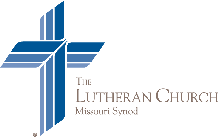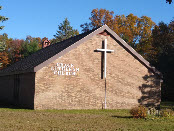Grace Lutheran Church
Baldwin, Michigan


Spring - Finally?
I think that we can finally say that Spring has arrived. After a couple of really mild winters, which has not been good for our winter sport economy, we had a hard winter that lingered long. But spring has arrived with the hope that spring brings.
Flowers are beginning to bloom, spring planting is underway, lawns are greening (and the sound of lawn mowers are heard), as beautiful as winter snow and frost can be, winter is also often dreary and grew, the promise of spring growth, color, and renewal is welcome.
Easter is the Spring Holiday. Lent, the church season that precedes Easter is a season of repentance and sorrow. The custom of giving up pleasures for Lent is a reminder of our sin and the damage that sin causes us and those around us. Lent is a season for facing head on our imperfection and our faults. The close of Lent is Good Friday and Holy Saturday when we remember that Jesus died because of our sin. We are the ones who put Jesus on that Cross and on Holy Saturday into the tomb. Much as we like to think about our good sides, the kind and helpful things we do, the love we show for those around us, and it is good to remember that, Lent reminds us that far too often our intentions are much better than our actions, and even our intentions are rarely pure. Lent fits the mood of late winter, when the sparkling, pristine snow has turned dirty and slushy, the days are endless, chilly clouds have turned blue skies grey, and nights are still long.
But Spring has arrived and with it Easter. Easter, when we celebrate the Resurrection of Jesus, encourages us to remember that with God, death does not have the final say, but Life with Jesus forever. On Good Friday, death claimed victory. But on Easter, death goes down to defeat and Life with Jesus wins the day.
Life goes on. Not every day now will be bright and sunny, but even the gray days of spring rains, and the stormy days of thunder and lightning should not hide that God loves us, forgives us, and gives us abundant life. Rejoice in the Life we share with Jesus and each other!